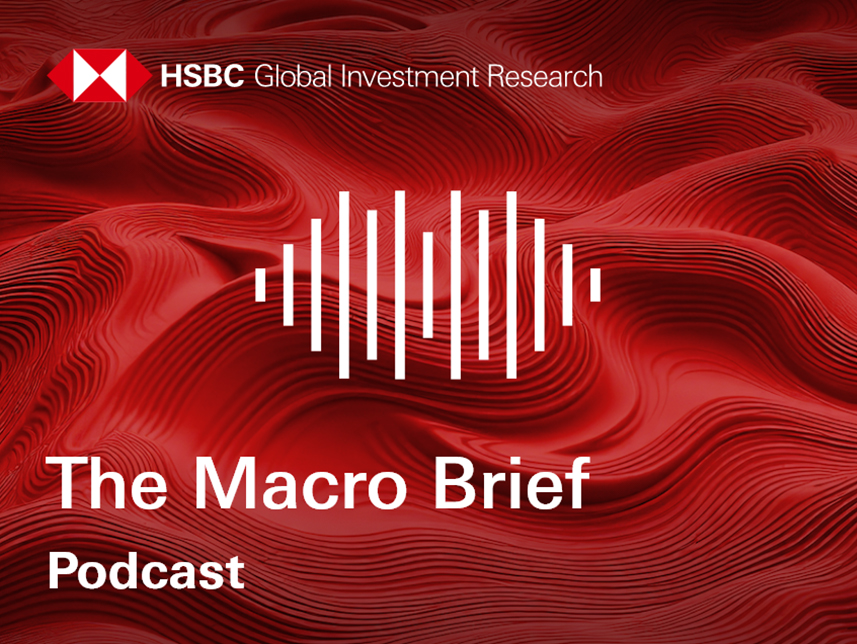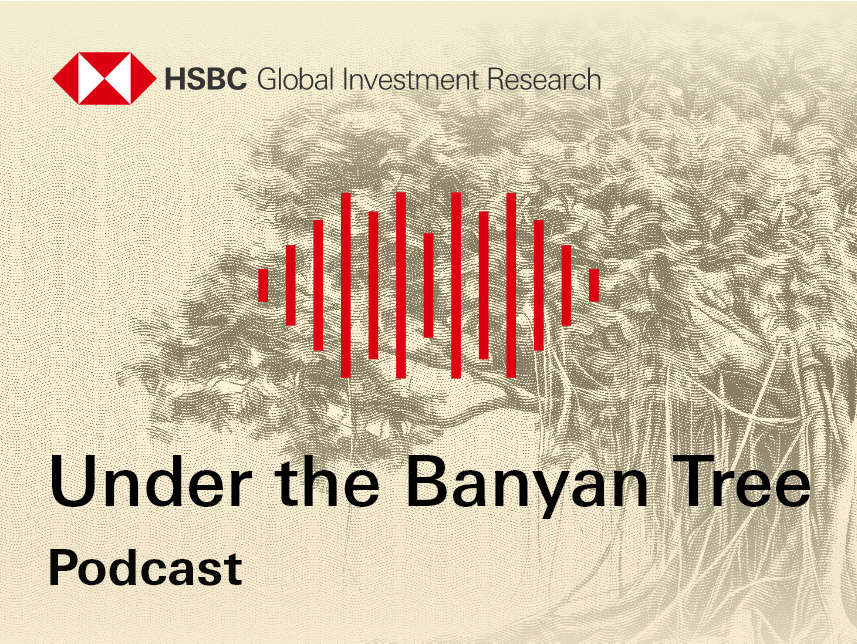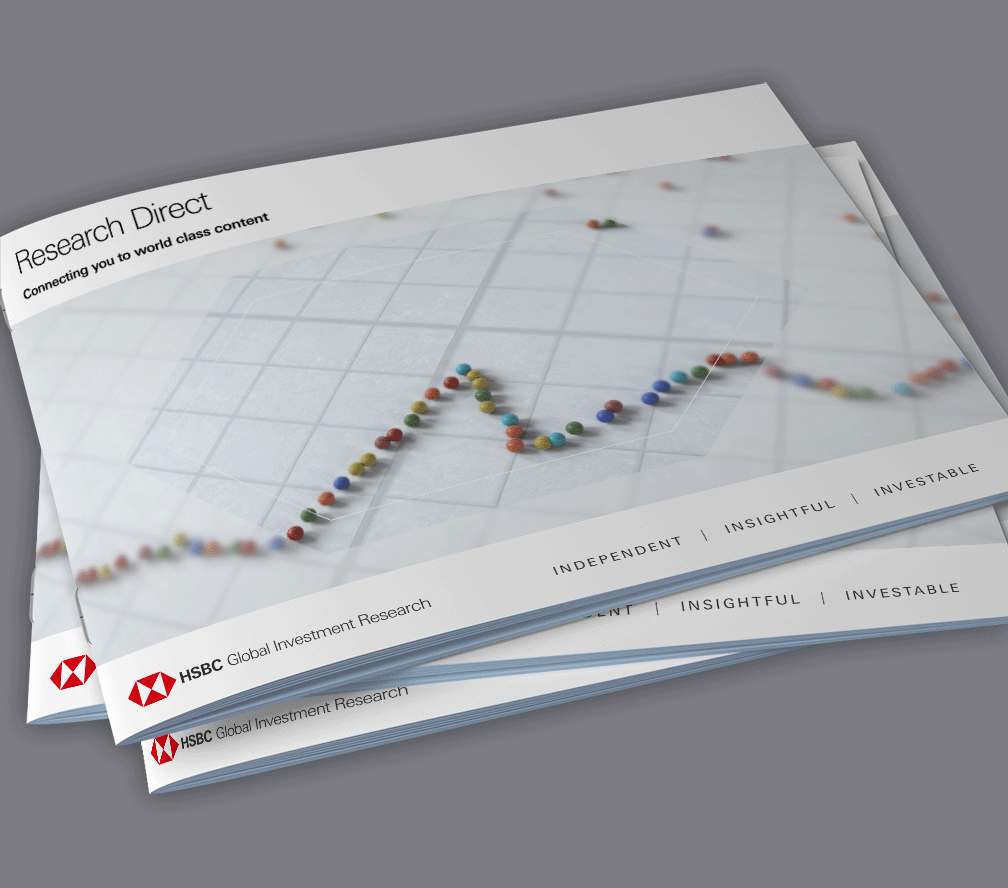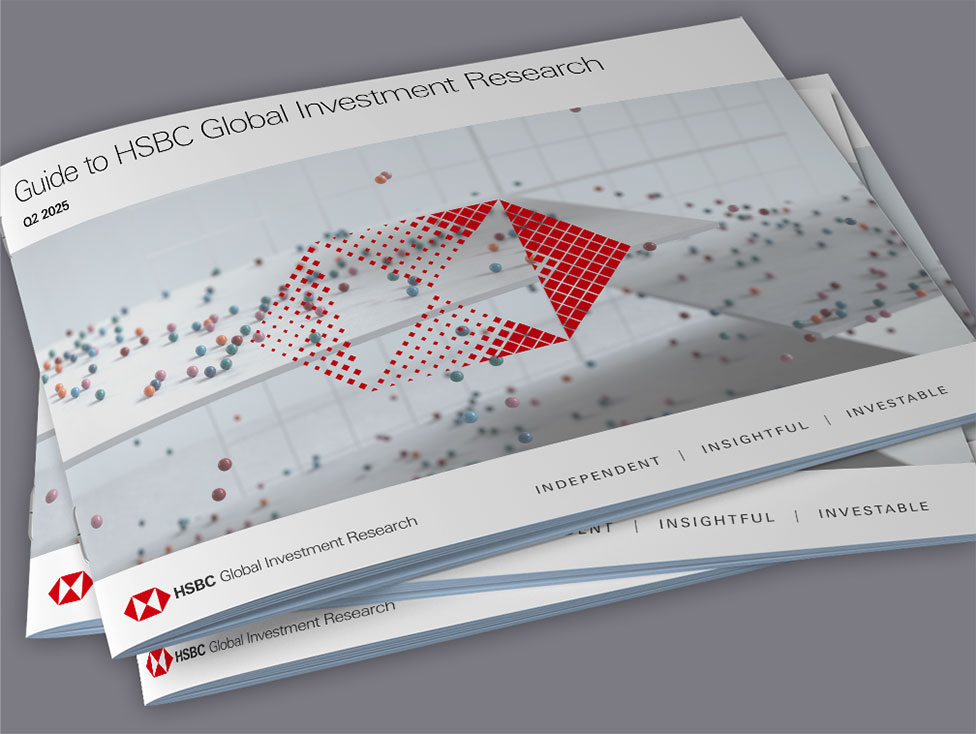
Independent, insightful and investable ideas to guide your outlook
Login below for full access.
Who we are
Guide to HSBC Global Investment Research – Independent, insightful, investable
Want to know more about HSBC Global Investment Research? David May, Global Head of Investment Research, explains who we are, what we do, and how we help clients make the right calls. Questions? Just email us at AskResearch@hsbc.com. And for topical, free to view insights, follow us on LinkedIn #HSBCResearch
Our reach
Thanks to HSBC’s international footprint, we have a strong focus on emerging markets and are able to put developments in a global context. We have analysts on the ground in some of the fastest growing markets in the world, something that differentiates us from other research houses.

Analysts
We have more than 290 analysts and associates in 15 locations across Asia, the Americas, Europe and the Middle East

Asset classes
Producing c.1,000 reports, podcasts and videos monthly across our asset classes

Focus
On Global Economics, Macro Strategy and Equity Research supported by AI and Data Science, Digital Assets, and Sustainability

Equities
Our analysts cover over 1,600 companies around the world
HSBC Global Investment Research podcasts

The Macro Brief - The A to Z of crypto
Daragh Maher, Head of Digital Assets Research, demystifies the world of cryptocurrencies and looks at how digital assets could move from niche to mainstream.
This podcast is also available on Apple Podcasts and Spotify or wherever you get your podcasts.

Under the Banyan Tree - Fun facts from your friendly equity strategists
Herald van der Linde and Prerna Garg take the pulse of Asia's consumer, airline, autos and pharma sectors through the lens of our latest "Ten surprising statistics" report.
This podcast is also available on Apple Podcasts and Spotify or wherever you get your podcasts.
Access our Insights
Research Direct

Connecting you to world-class research – investors seeking ‘Research Only’ access to HSBC Global Investment Research can be quickly on-boarded
- We offer access to our research platform to new clients in a simple and effective way
- Access our global and multi-asset content through our website, third-party aggregators and via our mobile app
- Or simply email us at AskResearch@hsbc.com
Gaining access to Global Investment Research
We have various products available for clients as well as non-clients. To get started follow these easy steps.
Available to clients
Download the HSBC Global Investment Research app
From Apple’s App Store or Google Play. The app features topical and timely curated reports, multimedia and upcoming events
Log onto the Global Investment Research website
To access all reports and videos log onto http://www.research.hsbc.com/
Available to all
Subscribe and listen to our podcasts
The Macro Brief: Assessing the key macro drivers across global markets.
Under the Banyan Tree: Putting Asian markets and economics in context.
Our weekly podcasts are available on Apple and Spotify or wherever you get your podcasts
Newsletters
Subscribe to our monthly collection of free to view reports and interviews, or read our bite sized round up of research covering our nine key themes. Open Pass or Talking Points
Connect on LinkedIn
Search for and follow #HSBCResearch. Reports and live events are free to view and can be easily shared
Shaping the Future - Nine key themes to guide your outlook
In Global Investment Research, we view today's world of disruptive, complex and rapid change through the lens of nine themes. We expect these long-term trends reshaping economies, markets and societies worldwide to have lasting implications for investment strategies. They are: Automation; Demographics; Digital Finance; Disruptive Technology; Energy Transition; Future Cities; Future Consumer; Future Transport, and Trade Flows. These themes inform our coverage across asset classes and regions, and are instrumental in enabling us to help clients spot risks and opportunities. Please read on for an overview of our thematic approach, and how you can subscribe to our latest insights on trends reshaping economies worldwide.
Shaping the Future
From Future Cities to Demographics and Energy Transition, this brochure explains our 9 themes and how to access them.

Your guide to Global Investment Research

HSBC Global Investment Research combines unparalleled local insights, global connectivity and professional integrity to deliver the best investment opportunities to our clients through fundamental analysis and thought-provoking ideas.
Our 290 analysts in 15 locations across Asia-Pacific, the Americas, Europe, the Middle East and Africa produce c.1000 reports, podcasts and videos every month. Our focus on Global Economics, Macro Strategy and Equity Research is supported by an integrated approach to Sustainability, AI and Data Science, and Digital Assets. View our brochure or watch our video to find out more
HSBC in the Extel Surveys
Want to connect with us?
Get in touch

Find out more
For more information on gaining access to Global Investment Research, ASK Research using the button below.



